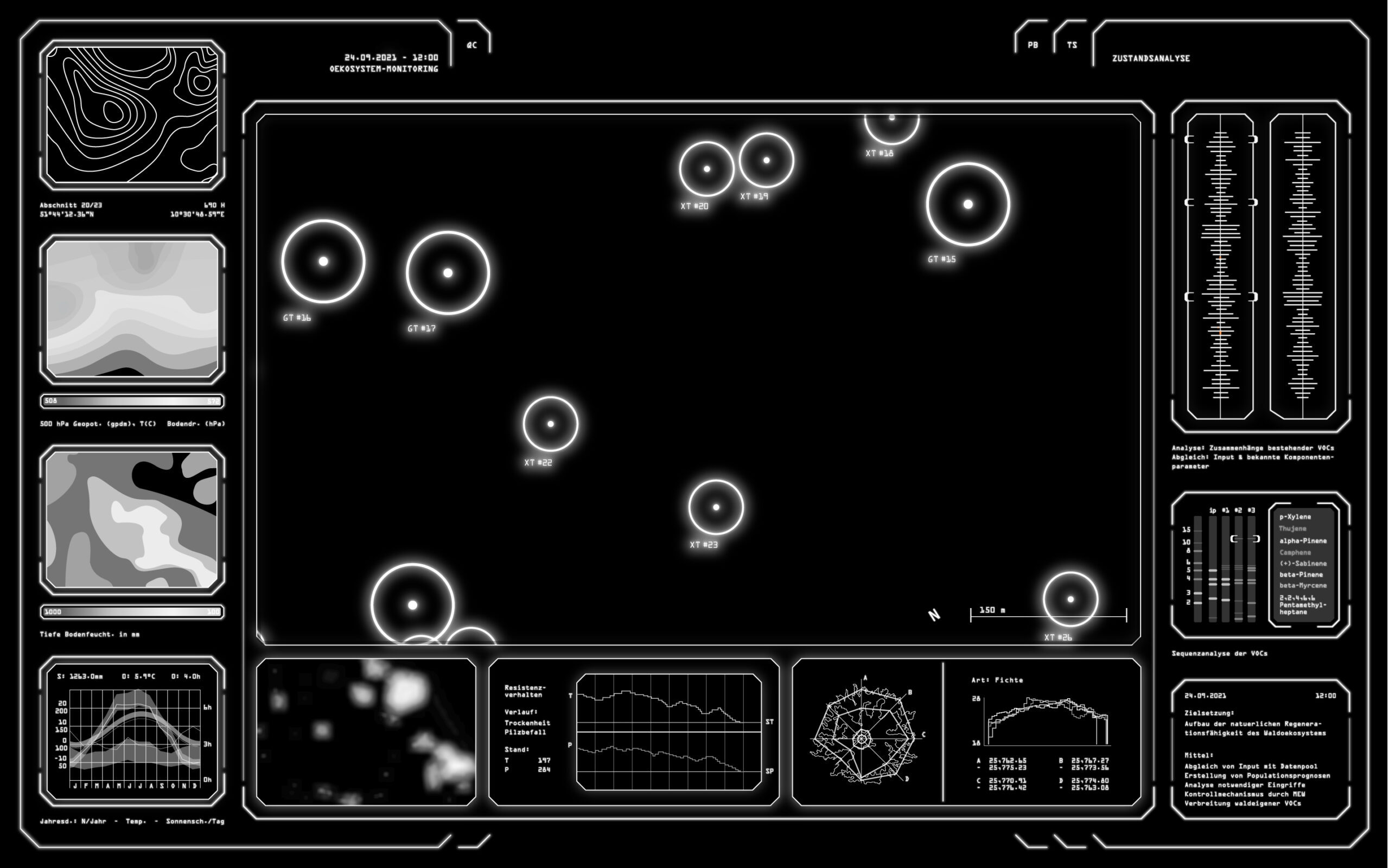
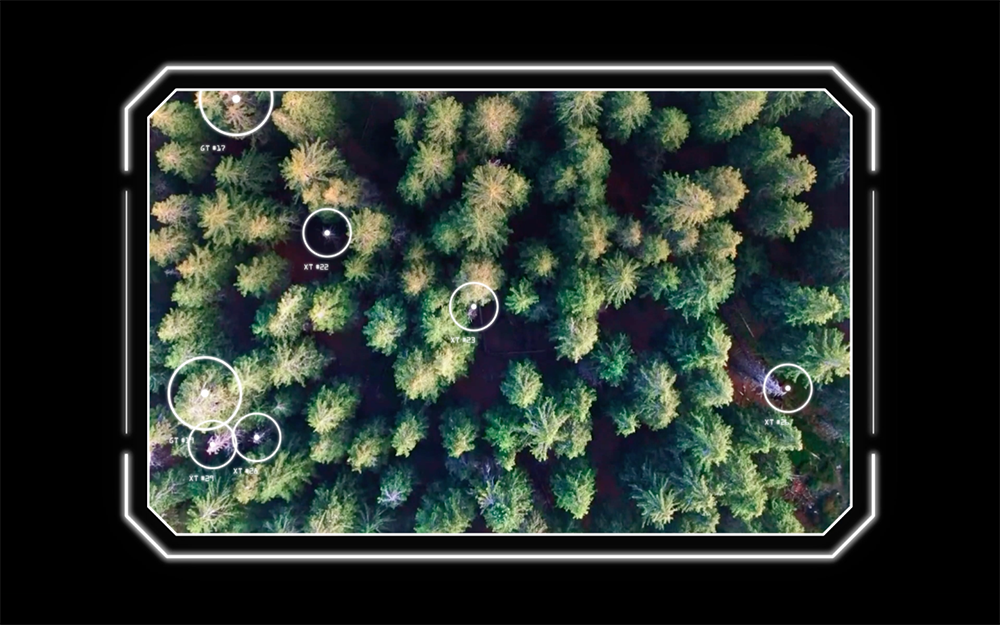
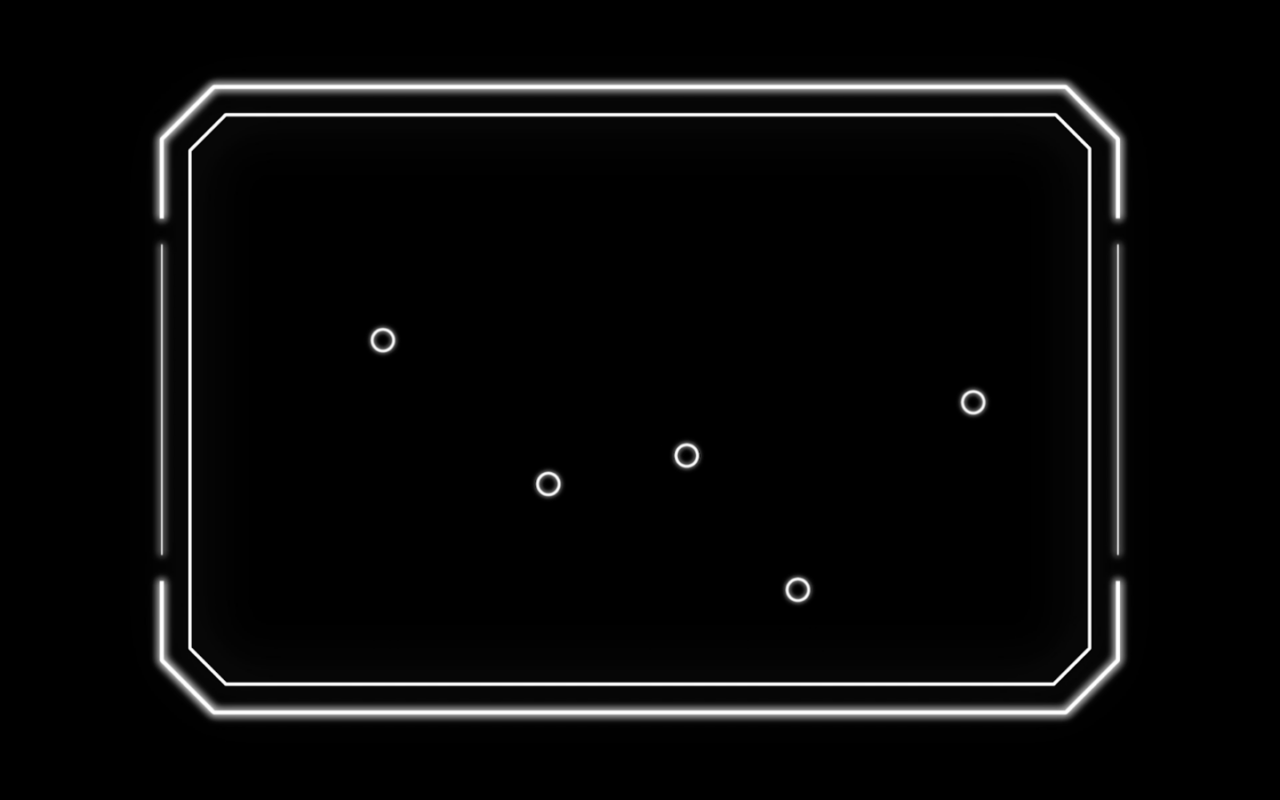
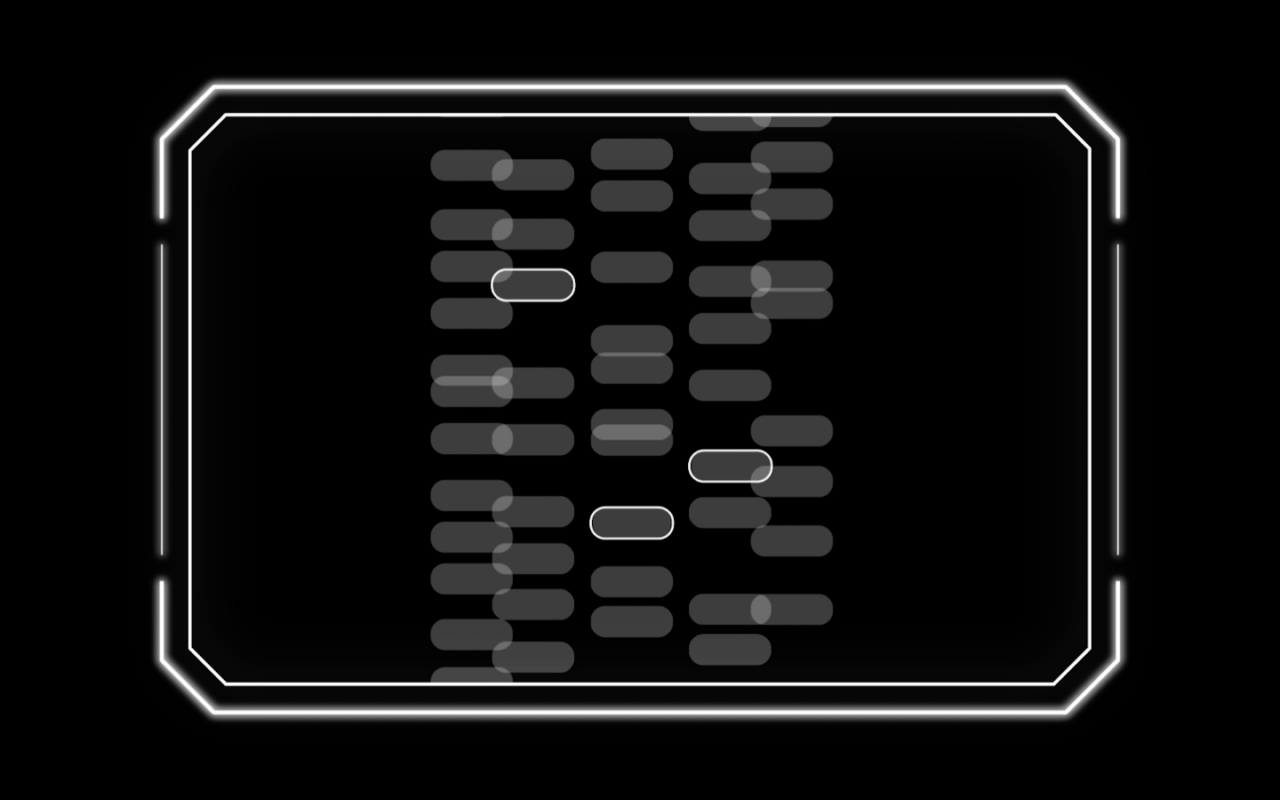
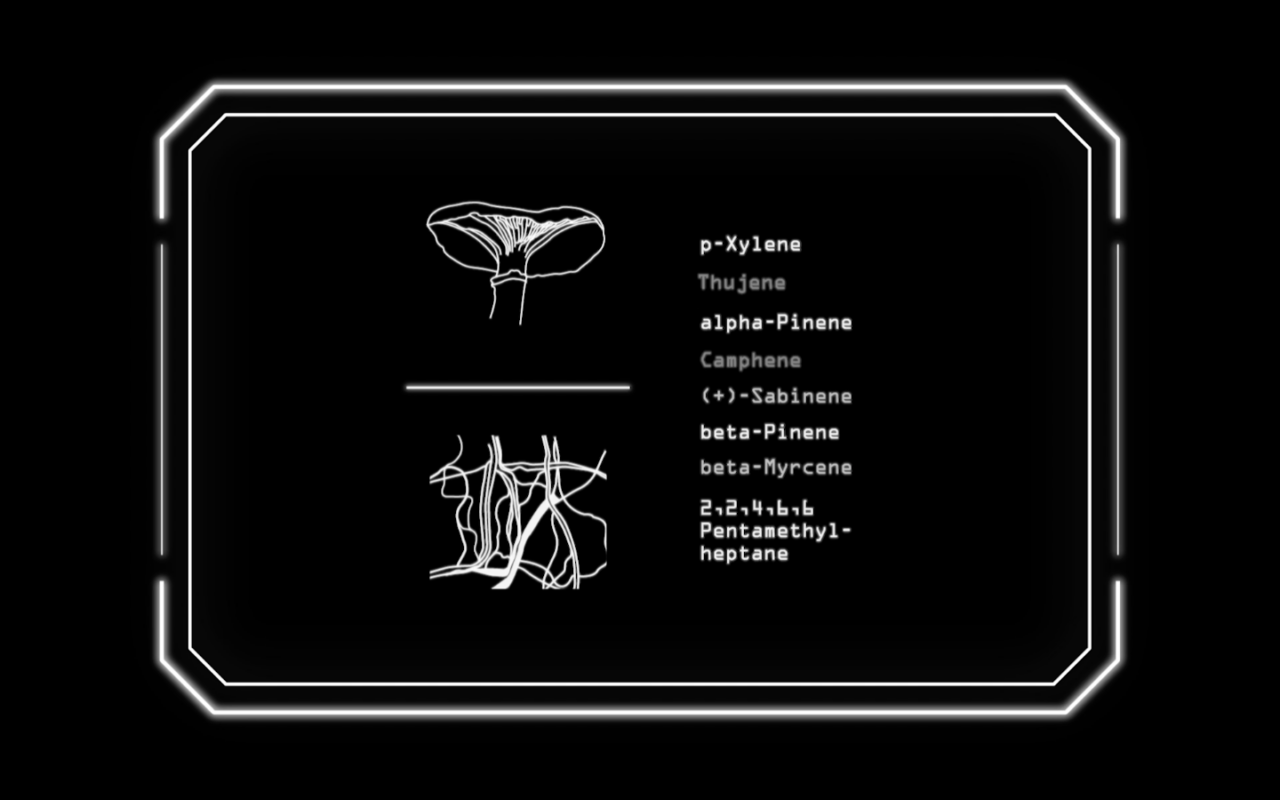
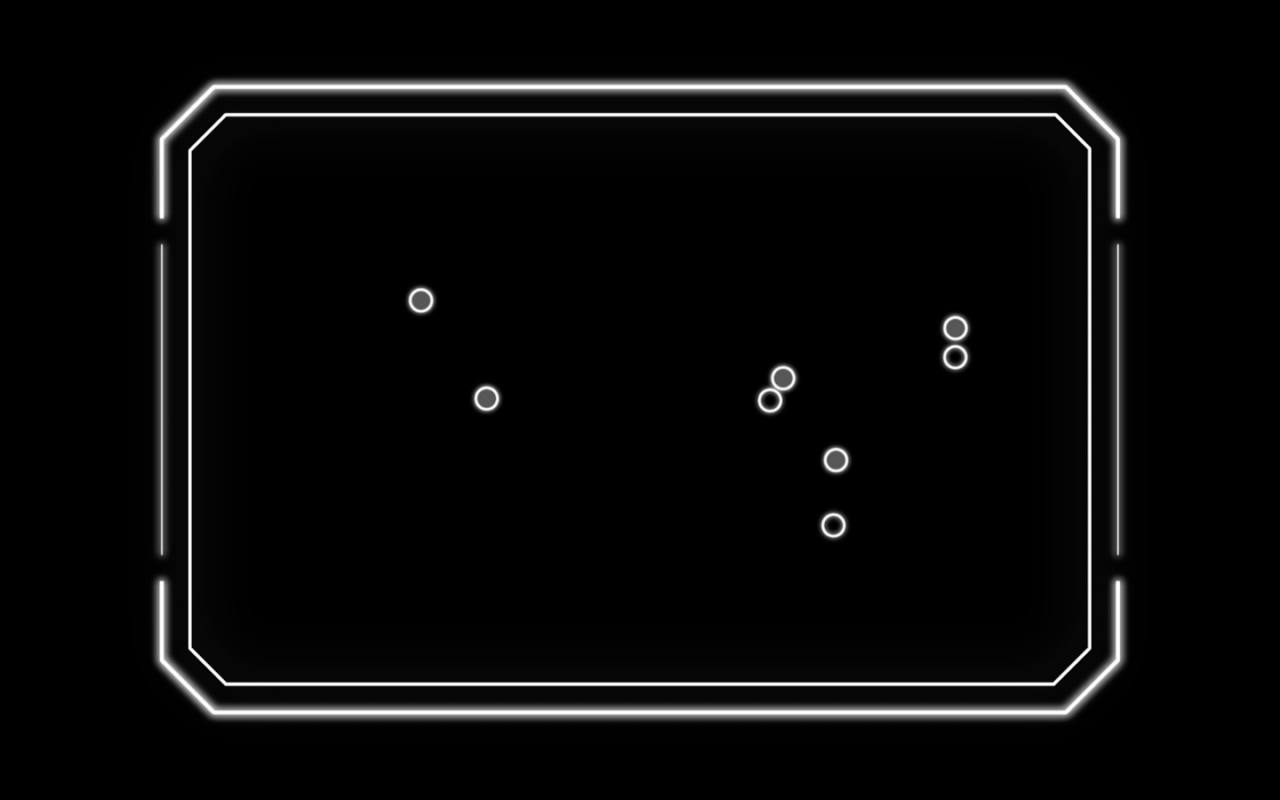
forsy_a
The forest with all its living creatures is a constantly balanced ecosystem. Species such as trees and the mycorrhizal fungus network live in a life-sustaining symbiosis. In the event of an external threat, the trees use the network to send warning signals to other plants. The effects of climate change, such as periods of drought and flooding, are weakening this symbiosis. The transmission of signals is therefore no longer possible and the health of the ecosystem is at great risk.
Due to these challenges, I have developed a speculative design project for an AI that bridges the communication gap of trees in the forest ecosystem over time. Through an interface, the threats and reactions of the forest are shown and made accessible to humans.
The visualization of FORSY-A is to be used to reflect the discussion of a nature-technology interaction. Does nature have the same right to the almost unlimited possibilities of technology as we do? Should we use technology to support nature in a way that we humans could not do alone?
With this speculative project, I want to debate the potential of technology as a tool for shaping a more-than-human world.
FORSY-A (the „Forest Symbiotic Agent“) reads the meteorological and historical data of the endangered forest area using satellite monitoring, sensor technology and modeling techniques. As soon as extreme weather conditions are predicted, FORSY-A analyzes the forest’s air components for chemical compounds emitted by threatened trees. As an agent-based learning algorithm, FORSY-A learns to understand the signals from trees in correlation with weather patterns and sensor data. If, for example, an attack by a herbivore is detected, the data from the air components is used to produce the chemical substance of the natural defense mechanism in a laboratory. Drones then spray these substances in the endangered forest ecosystem to naturally pre-immunize distant trees. The communication in the ecosystem is thus bridged by FORSY-A and the forest is supported until the natural communication network is strengthened again.
publications
Gebker, M. (2023). More than human approach – Next Generation: Ecosystems of technology. Next Nature. Retrieved from https://next- nature.net/magazine/story/2022/technology-as-an-ecosystem- actor?token=86c40c1486c9c9b88b1a6b1ff9d79fc180fcc0ec&utm_ campaign=later-linkinbio-nextnaturenetwork&utm_content=la- ter-30512978&utm_medium=social&utm_source=linkin.bio.
Gebker, M. (2022). Technology as an ecosystem actor [Conference talk]. Splintered Realities Rixc Art and Science Festival, Riga, Latvia.
Gebker, M. (2022). Technology as an ecosystem actor [Conference talk]. Digital Ecologies Conference, Bonn, Germany.
Gebker, M. (2021) Forest digital inclusion. Grüner Salon. Nantesbuch, Bad Heilbronn, Germany.

